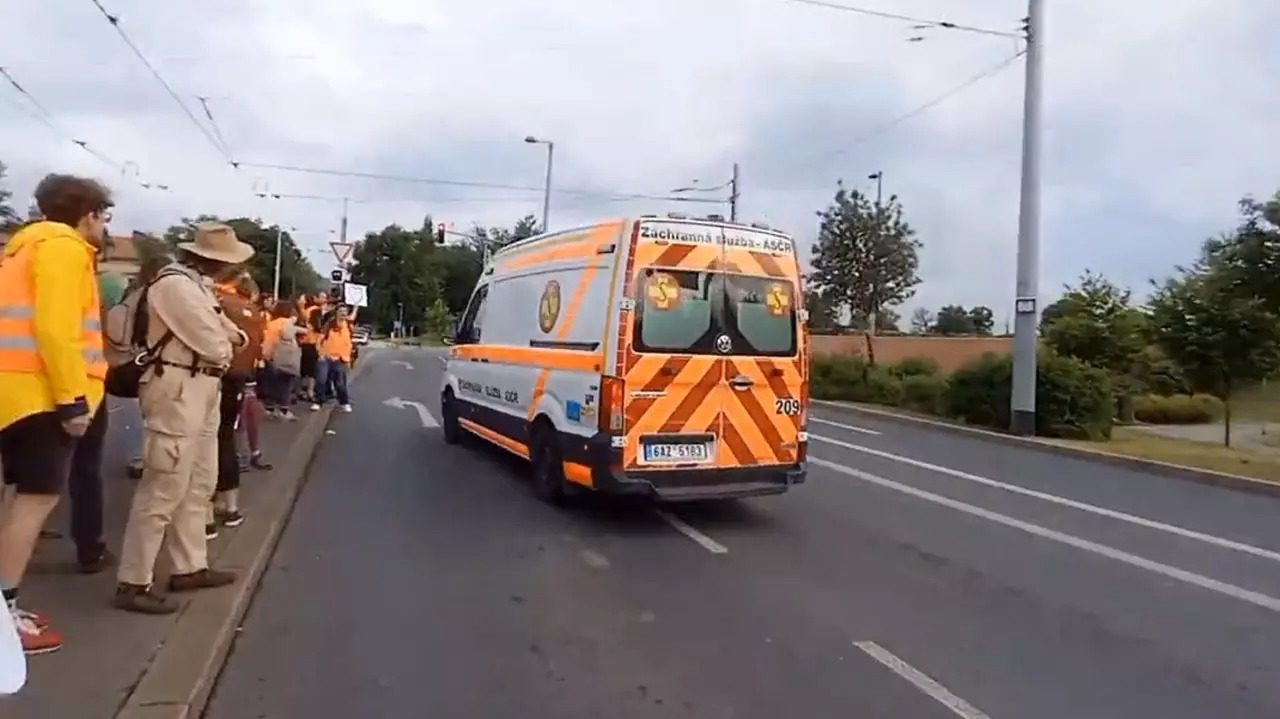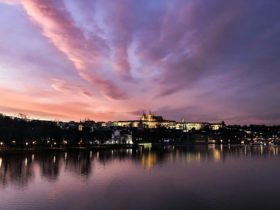In recent years, protests have become a ubiquitous and controversial phenomenon in many parts of the world. While protests are a legitimate form of expressing grievances and demanding change, they can also disrupt public services, cause traffic jams, and create hazardous situations for pedestrians, drivers, and emergency vehicles. A recent incident in Prague illustrates the potential consequences of protests on public safety and emergency services.
In Prague, a group of activists recently blocked a road for a protest demanding a 30 km/h speed limit. As a result, an ambulance had to navigate through a traffic jam caused by the protest. The activists claimed that they made way for the ambulance, but the incident has sparked controversy and raised questions about the responsibility of protesters in emergencies.
The protest took place last week and led from Vítězné náměstí through Morávkův Park to Milady Horákové Street. At one point, the ambulance encountered a traffic jam caused by the protest, and the activists claimed that they made way for it. However, critics argue that the traffic jam was caused precisely by the protest, and making way for emergency vehicles is a legal obligation that should not be praised as an act of heroism or activism.
The ambulance in question was transporting a patient in an urgent condition, and fortunately, the incident did not cause any harm to the patient. However, delays and complications caused by such incidents can have fatal consequences for patients, as timely medical intervention is crucial in urgent cases. Therefore, making way for emergency vehicles should not be a matter of choice or preference but a legal and moral obligation.
The controversy around the incident has also highlighted the broader issue of the impact of protests on public safety and well-being. While protests are a legitimate form of expressing grievances and demanding change, they can also disrupt public services, cause traffic jams, and create hazardous situations for pedestrians, drivers, and emergency vehicles. Therefore, protesters should consider the potential consequences of their actions and seek to minimize the negative impact on public safety and well-being.
The incident in Prague is not isolated, as similar incidents have occurred in other cities and countries. In some cases, protesters have intentionally blocked emergency vehicles as part of their protest tactics, which has led to outrage and condemnation from the public and authorities. Therefore, protesters need to respect the legal and ethical norms of emergencies and prioritize the safety and well-being of all citizens.
In response to the incident, some satirical groups have mocked the protesters and the controversy around the incident. However, satire and humor should not distract from the serious issues at stake, and protesters and authorities should engage in constructive dialogue and action to address the underlying concerns and grievances.





